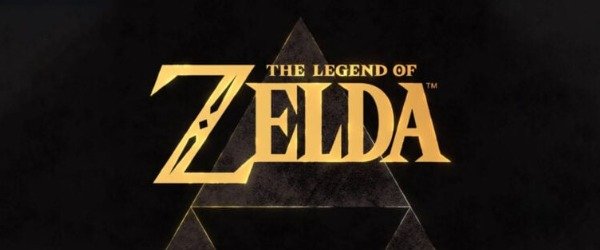Generative AI (Gen AI) tools like ChatGPT have become an ever-present part of many people’s personal and working lives. And whether they are causing more harm than good to our cognitive skills or problem solving is a growing concern. Experts are worried that dependence on Gen AI is making users who lean heavily on these tools “dumber,” according to research findings.
In a recent paper, a team from Microsoft and Carnegie Mellon University found that “higher confidence in Gen AI is associated with less critical thinking, while higher self-confidence is associated with more critical thinking” amongst a group of 319 knowledge workers from a wide range of fields.
Their findings showed that while Gen AI tools can improve efficiency at work, they may also “inhibit critical engagement with work and can potentially lead to long-term overreliance on the tool and diminished skill for independent problem-solving.”
Decline in Critical Thinking Skills
This declining “analytical engagement” translates to less fact-checking, and more time reading through AI-generated text rather than creating content, amongst more.
For Anjali Singh, a postdoctoral fellow at the University of Texas, Austin who wasn’t involved in the study, this moving away from creative tasks, and offloading them on to Gen AI instead, is one of the major concerns emanating from this paper.
“If you practice less of those kind of skills, your critical thinking is likely to get negatively impacted,” says Singh.
Unfortunately, though, the answer to this question is far more complex. Singh believes that “the impact of AI on cognition really depends on how we use it and on who is using it.”
She also points out that the Microsoft study focused on professionals and experts in their field. Her own research concerns “novices,” a group that can include students or people who are new to a profession or field.
“It’s for them that Gen AI tools can be especially harmful,” she says, as they may rely on them to carry out more tasks, or “thinking” on their behalf than experts in their field. “As a result, it can, in the long-term, lead to a decrease in what kind of cognitive skills they use in a given context, and how they use them.”
Read More: AI and the Human Brain: How Similar Are They?
Artificial Intelligence in Education
Another paper published in 2024, for example, found university students facing “high levels of academic workload and time pressure” resorted to using ChatGPT more frequently, ultimately increasing levels of procrastination, affecting their memory, and harming grades amongst some participants in the research.
On the flip side, others are enthusiastic about the potential of Gen AI to help build cognitive skills, or make us smarter, with other studies underlining a positive influence in some cases.
A study published last year, for example, found that incorporating ChatGPT in classwork resulted in significant improvements in some student’s “critical, creative, and reflective thinking scores” compared to those who didn’t use it.
“As technology in education continues to grow, we suggest that ChatGPT can be a valuable mechanism for academics in higher education to consider,” the researchers wrote.
They are not alone in backing ChatGPT and similar tools in educational settings. Rossella Suriano, a researcher in the department of Cognitive, Psychological and Pedagogical Sciences and Cultural Studies at University of Messina, led a study that found a positive influence of ChatGPT on critical thinking skills.
“The study highlighted that interaction with ChatGPT can indeed promote the development of complex critical thinking skills,” Suriano says. But, in her view, that’s also contingent on how these tools are used.
“This research suggests that using it actively and consciously, ChatGPT can become a valuable tool for developing advanced cognitive skills in an educational setting,” she says.
How to Function with AI Tools
For Suriano that means understanding how they function and, importantly, recognizing their limitations. Just as we would, or shouldn’t necessarily, believe everything we read online, or a person tells us.
“The prompt we provide and the attitude with which we engage profoundly influences the response,” she adds. Instead of diminishing cognitive capacity, when used correctly, these tools could actually “enhance our ability to think and reflect independently.”
There is still more to learn as much of the research investigating Gen AI’s influence – whether helpful or harmful – on our cognitive abilities is short-term in nature; that’s a problem that needs to be resolved, says Singh, particularly when it comes to younger people.
“Even for experts, it is yet to be seen what the impact that Gen AI is having in the long term,” says Singh. “There hasn’t really been enough time to see the kind of impact these tools will have on our cognition.”
Unfortunately, that means any answer to the question of whether ChatGPT and other Gen AI is making us dumber is somewhat vague; it could, but it also might make us smarter, if used in the “right” way.
Read More: The Pros and Cons of Artificial Intelligence
Article Sources
Our writers at Discovermagazine.com use peer-reviewed studies and high-quality sources for our articles, and our editors review for scientific accuracy and editorial standards. Review the sources used below for this article:
-
Microsoft and Carnegie Mellon University. The Impact of Generative AI on Critical Thinking: Self-Reported Reductions in Cognitive Effort and Confidence Effects From a Survey of Knowledge Workers
-
International Journal of Educational Technology in Higher Education. Is it harmful or helpful? Examining the causes and consequences of generative AI usage among university students
-
Computers and Education: Artificial Intelligence. ChatGPT effects on cognitive skills of undergraduate students: Receiving instant responses from AI-based conversational large language models (LLMs)
-
Learning and Instruction. Student interaction with ChatGPT can promote complex critical thinking skills
Sean Mowbray is a freelance writer based in Scotland. He covers the environment, archaeology, and general science topics. His work has also appeared in outlets such as Mongabay, New Scientist, Hakai Magazine, Ancient History Magazine, and others.











